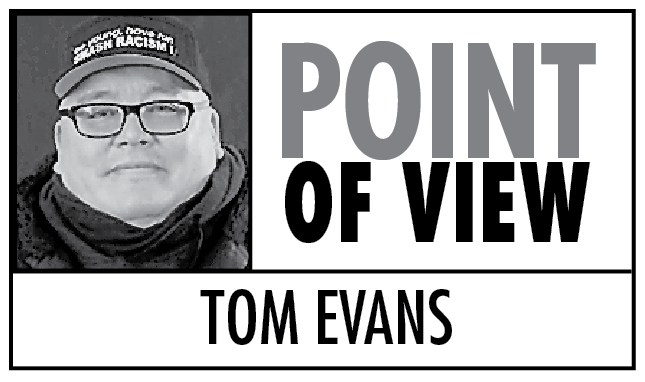I live in a remote coastal village in Lower Cook Inlet, and my family and my community depend on the ocean for food. Whether it’s collecting bidarkis off the rocks, clams from the beaches or halibut from deeper waters, we rely on a healthy ocean to sustain us.
Today, however, we’re seeing rapid changes in our oceans, and one of the most alarming problems is ocean acidification. As we pump more and more carbon into our atmosphere, our oceans absorb more carbon, and they’re becoming more acidic.
This acidification is now threatening our shellfish, because acidic conditions make it harder for animals to build shells using calcium. Equally important, ocean acid threatens many of the tiniest plankton at the bottom of the food chain, because they too rely on calcium to build their tiny bodies. As a people residing at the top of the food chain — who rely on fish that rely on plankton — ocean acid is a direct threat to my family, my community and most Alaskans.
That’s why I’m dismayed to see legislators such as Sens. Pete Kelly, Cathy Giessel and others pushing to build huge, new coal-fired power plants across our state. Coal produces vastly more carbon emissions than natural gas and cleaner renewable technologies, and it’s a leading contributor to ocean acidification.
Scientists across the world agree ocean acid is a major problem. But facts and science apparently don’t factor into play in some Juneau offices. For example, Sen. Pete Kelly said publicly he wants to spend our public dollars on a report to build coal plants that would intentionally violate federal clean air laws and — here’s the kicker — never get turned on until the apocalypse comes. You can’t make this stuff up.
More recently, Sen. Giessel held a hearing in her Senate Resources Committee to cheerlead for more coal development, and regular Alaskans are not allowed to testify. Her committee has even posted bogus “science” online that’s paid for by corporations like Exxon and other big polluters. Alaskans understand that corporations have special influence over our affairs, but politicians like Sen. Giessel should not be allowed to strip away our rights as Alaskans to testify about our oceans.
But coal’s not just a threat to our oceans. In Upper Cook Inlet, the Chuitna coal strip mine would be the first project in Alaska history to mine down through 25 miles of salmon streams. This would set a horrible precedent, putting dirty coal above wild salmon, just so a couple Texas billionaires can ship Alaska coal to China. Unfortunately, the Parnell Administration is working hard to make sure this project receives its permits.
Last year, Gov. Sean Parnell also killed the state task force that was exploring ocean acidification and related issues. There was no public notice, no public discussion, and Gov. Parnell provided no reason to Alaskans. This is the same trend we saw with Governor Parnell’s House Bill 77, which would have stripped Alaskans of many of our rights to participate in government decisions about our fish and water resources.
Once again, the politicians and the Outside corporations that support them do not want regular Alaskans to speak out on issues that affect our everyday lives.
We have a proverb that says “you can’t wake a person who is pretending to be asleep.” I don’t think we can wake Gov. Parnell or Sens. Giessell and Kelly to the dangers that coal poses to our oceans. But I think Alaskans have a right to have an open and honest debate about these issues. Because if we don’t, our oceans will soon stop sustaining us.
Tom Evans lives in Nanwalek with his family and they rely on the ocean for their food and culture. He is a past member of the Nanwalek IRA Council and a board member with Cook Inletkeeper.


